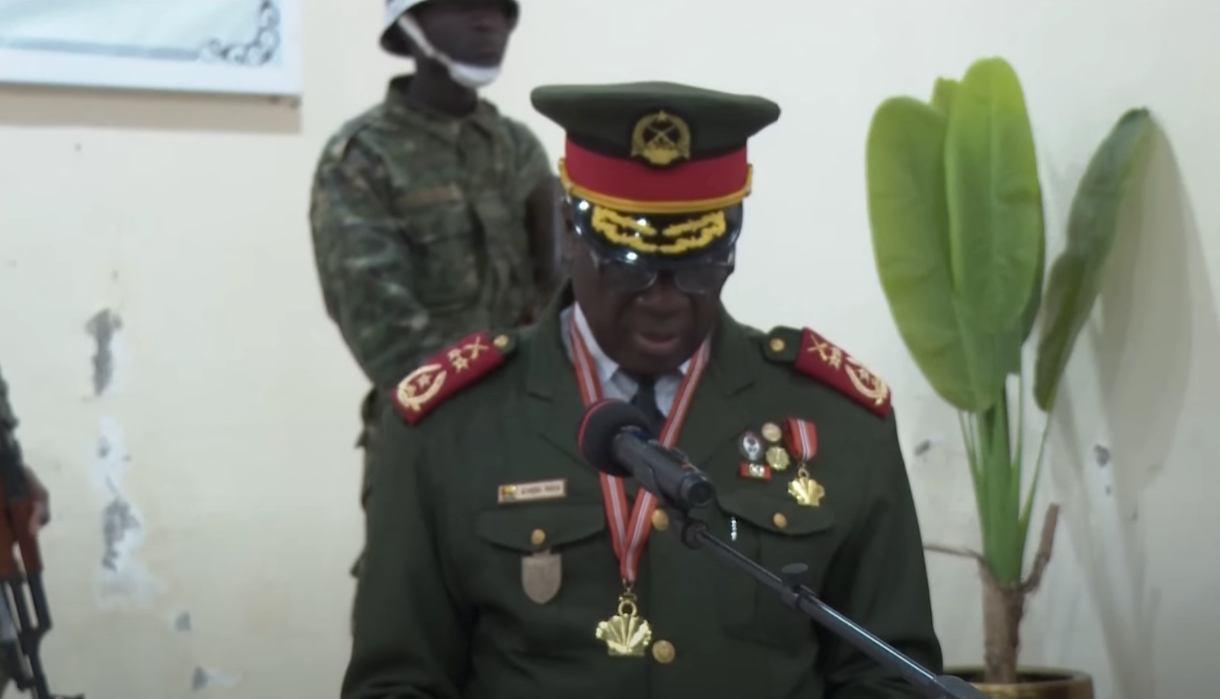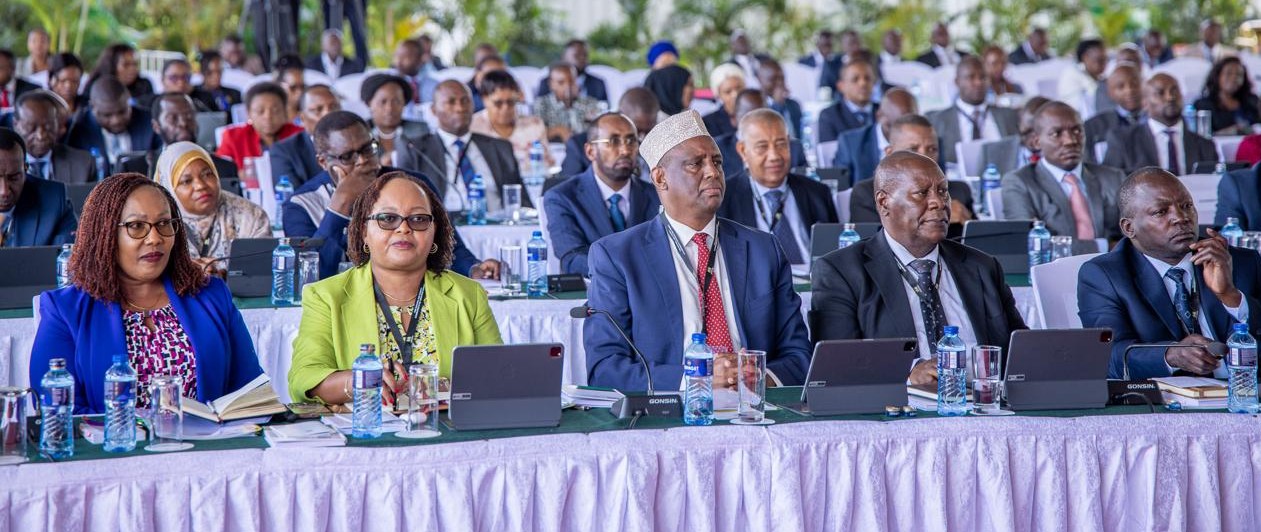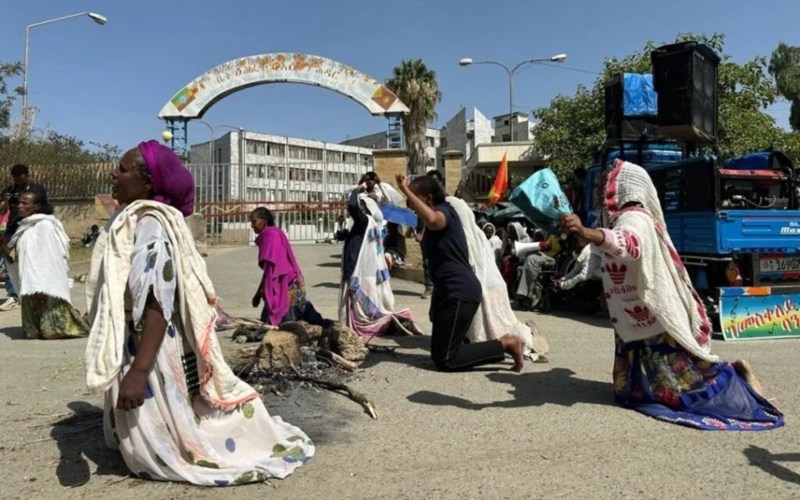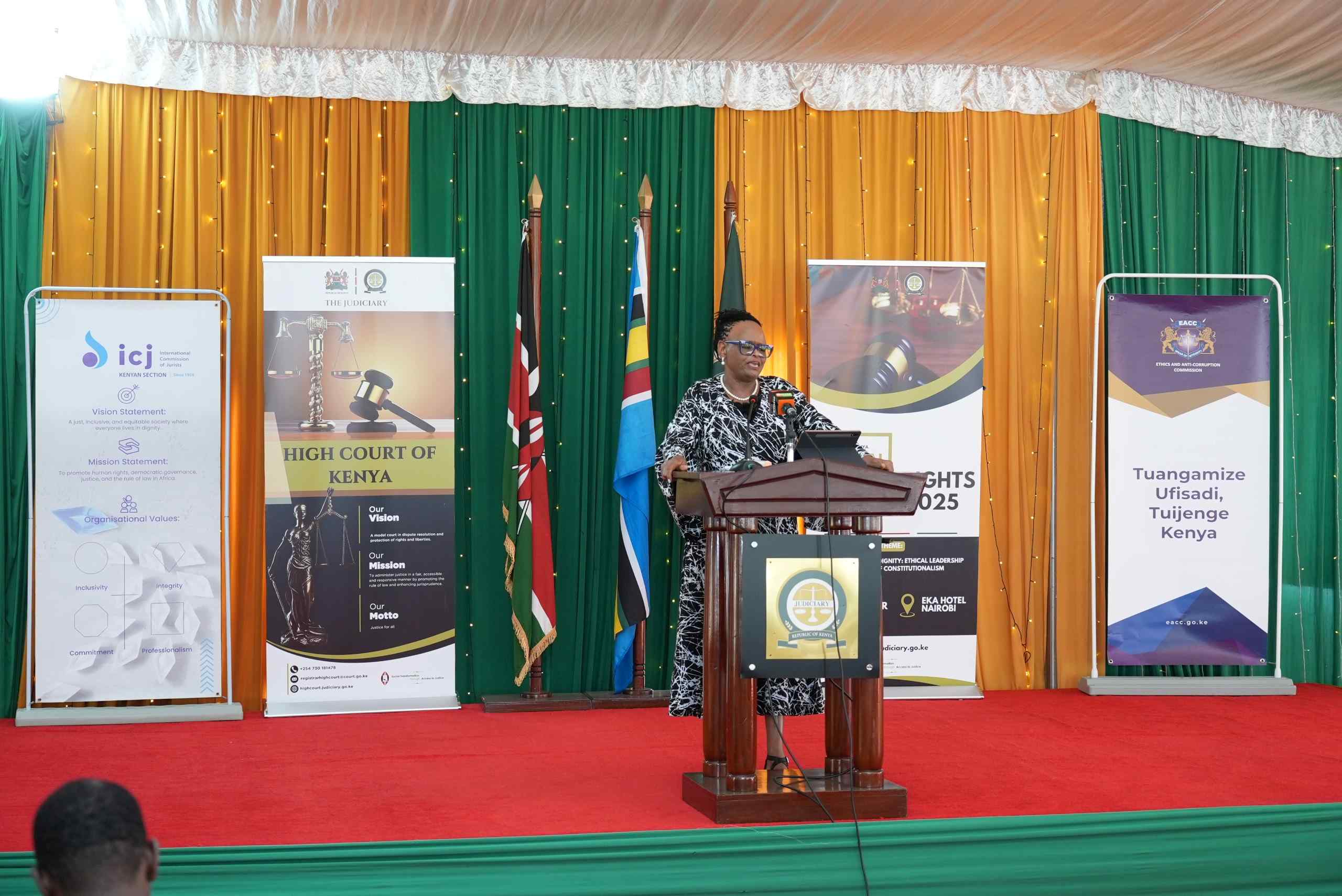Sudan: Aid lifeline reaches Darfur in bid to avert ‘hunger catastrophe’
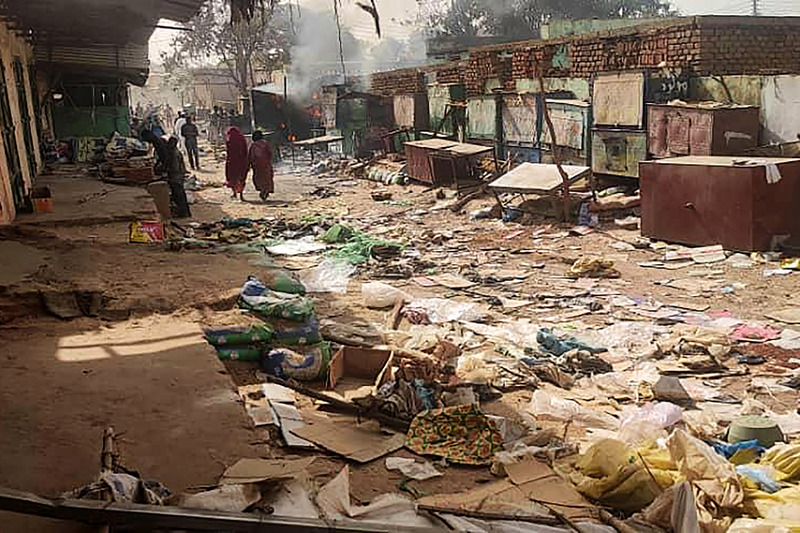
The UN agency reported on Friday that 37 trucks carrying 1,300 tons of supplies crossed last week into West Darfur from Adre in Chad
Two aid convoys carrying lifesaving supplies have reached Sudan’s Darfurs for the first time in months, the UN World Food Programme (WFP) said on Friday, as humanitarians try to avert a “hunger catastrophe”, after nearly a year of heavy fighting.
“The UN WFP has managed to bring desperately needed food and nutrition supplies into Darfur; the first WFP assistance to reach the war-wracked region in months,” said Leni Kinzli, WFP Communications Officer in Sudan.
More To Read
- UN warns human rights face growing threats worldwide in 2025 as funding for activists falls
- All we want for Sudan is peace, say children fleeing violence
- Sudanese herders struggle to safeguard livestock amid devastating war
- ICC sentences Sudanese militia leader Ali Kushayb to 20 years for Darfur war crimes
- Sudan puts Russian Red Sea naval base plans on hold to focus on domestic crisis
- Sudan: Kordofan cannot become ‘another El Fasher,’ UN rights chief warns
The convoys crossed into Sudan from Chad in late March, carrying enough food and nutrition supplies for 250,000 people facing acute hunger in North, West and Central Darfur.
Constant flow needed
Despite this welcome development, the UN agency spokesperson warned that unless the people of Sudan receive a constant flow of aid “via all possible humanitarian corridors from neighbouring countries and across battle lines”, the country's hunger catastrophe will only worsen.
Last month, WFP Executive Director Cindy McCain warned that the war in Sudan risks triggering the world's worst hunger crisis unless families in Sudan and those who have fled to South Sudan and Chad receive desperately needed food assistance.
This requires unfettered access, faster clearances, and funds to deliver humanitarian response that meets the huge needs of civilians impacted by the devastating war.
Humanitarian stakes
Securing safe and constant aid access to the Darfurs “has been extremely challenging”, WFP’s Ms. Kinzli explained, adding that the situation has been complicated further by the decision of the head of the Sudanese armed forces based in Port Sudan to refuse permission to humanitarians seeking to reach the Darfurs from Chad.
Delayed response
“Fierce fighting, lack of security and lengthy clearances by the warring parties have led to delays in the distribution of this assistance to people in need,” Ms. Kinzli insisted. “WFP and our partners urgently need security guarantees and deconfliction so the supplies in North Darfur can be distributed to people who are struggling to find even one basic meal a day.”
The UN agency reported on Friday that 37 trucks carrying 1,300 tons of supplies crossed last week into West Darfur from Adre in Chad - and that food distributions were underway in West and Central Darfur.
Last year, WFP supported one million people in West and Central Darfur with food transported via Chad’s Adre crossing.
Another 16 trucks with around 580 tons of supplies entered North Darfur from Chad’s Tina border crossing on 23 March, WFP said.
An additional six trucks with 260 metric tons of food reached the area from Port Sudan a few days later – the first aid delivery to be transported across conflict lines in six months.
But the UN agency noted that “fierce fighting, lack of security, and lengthy clearances by the warring parties” had led to delays in the distribution of this assistance.
Geneina in crisis
“There is a lack of clarity whether we will be able to continue and regularly use the cross border [route] from Adre into West Darfur, which is so critical because West Darfur is among the most food-insecure areas in Sudan,” the WFP official noted.
This is especially the case in Geneina, capital of West Darfur, where the UN agency said that “many vulnerable women” had reportedly stormed one of the distribution points “out of desperation because there was not enough food for everyone”.
Over the last four to five years, Geneina is also the place “where we see the highest levels of hunger in the lean season”, Ms. Kinzli said.
Sudan’s war between rival generals which erupted last April has driven hunger to record levels, with 18 million people facing acute malnutrition.
In Darfur, 1.7 million people are already enduring emergency levels of hunger - IPC4 – according to global food security experts.
“If we aren't able to use that specific corridor (from Adre to West Darfur) and continue to use it and scale up via that corridor…what is going to happen to the people of West Darfur who are bearing the brunt of this conflict, who are in an unimaginable situation?” WFP’s Ms. Kinzli said.
Top Stories Today








